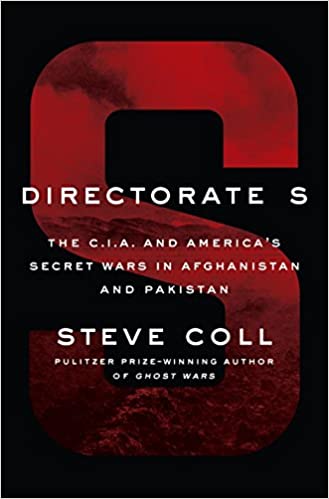Steve Coll – Directorate S Audiobook (The C.I.A. and America’s Secret Wars in Afghanistan and Pakistan)

According to General Sir Frank Kitson, “Insurgents begin with only a cause and grow to stamina, while the counter-insurgents start with everything however a cause as well as slowly decrease in strength and also grow to weak point” (“Reduced Strength Workflows: Subversion, Revolt and Peacekeeping”). That 1971-era proverb has actually repeatedly been shown appropriate as well as the United States “Union” initiative in Afghanistan shows its accuracy yet once more. After virtually 20 years and around 1 trillion bucks invested until now, a bloody as well as extremely tenuous balance exists between Taliban insurgents and advocates of the Afghan government. The battle from its inception to the here and now time is thoroughly looked into and also compellingly presented in Steve Coll’s 2 publications, “Ghost Battles” and also “Directorate S”. Regrettably, without end to the problem in sight, a 3rd volume may become needed to upgrade the tale.
Despite the slim focus suggested by the title, “Directorate S” does not focus either solely neither mainly on that branch of Pakistan’s Inter Solutions Intelligence Directorate (ISI). The CIA was the focus of “Ghost Wars”. Directorate S Audiobook Free. The a lot more rare Pakistani analogue, ISI Directorate S (charged – at the very least partially – with supplying support, logistic, intelligence, product and occasionally routed support for Islamist insurgent/terrorist teams operating against Indian impact and also Union forces in Afghanistan) has a history– however baleful – position in “Directorate S”.
Coll’s history begins where “Ghost Wars” ended, i.e., the conclusion of the 1979-1989 battle of Afghani and allied Islamist teams against the Soviet Union. The USSR was defeated by CIA as well as Saudi supported insurgents. This occurred in spite of “full blast” efforts by a contemporary and usually ruthless military routed versus a “ragtag” constellation of tribes doing not have an air force, armored vehicles and other accouterments possessed by the Red Army. The Soviet loss should certainly have actually been a practical demonstration for successors, but it wasn’t.
Obviously, the certainty of significant and also frustrating United States action versus al Qaeda and its Taliban hosts after September 11 was obvious as well as probably sensible at the time. What wasn’t thought out however was the repercussion of military action, that being a long-lasting and also interminable involvement in a conflict that would result in (at the best) a pricey and also unsustainable arrest. Pham Van Dong, (North Vietnamese premier as well as Ho Chi Minh’s close aide and follower) presciently commented to French war historian Bernard Fall in 1962, “Americans do not such as long, undetermined battles– and this is mosting likely to be a long, inconclusive war” which was 3 years before we increase involvement.
If, as Henry Kissinger said, “The examination of plan is how it finishes, not exactly how it starts” (Washington Article, March, 2014), we have actually fallen short entirely as well as entirely in Afghanistan. As also a laid-back reading of counterinsurgency literary works programs, the prospect of prevailing against a revolt in region adjacent a helpful state approximates zero. A quick eye a map reveals such a state (Pakistan) and a brief glance at any type of information resource reported given that about 1947 gives insight into the ineradicable animosity (religious, geostrategic) between Muslim Pakistan and also Hindu India. Steve Coll – Directorate S Audio Book Online. Afghanistan isn’t known as “The Graveyard of Realms” for nothing. The ordeals outsiders suffered there are well known as well as the stuff of legends and fiction. Consider George MacDonald Fraser’s anti-hero Harry Paget Flashman’s adventures in the First Anglo-Afghan Battle. While our military management isn’t as inefficient as that of Major-General William George Keith Elphinstone (whose disastrous hideaway from Kabul harkens to Napoleon’s resort from Moscow) as well as we’ve yet to endure various other ignominies of First Anglo-Afghan Battle such as the Last Stand at the Battle of Gandamak as well as the Siege of Jalalabad, we aren’t winning, either.
“Directorate S” details all the problems related to porous borders, semi-autonomous (i.e., mainly ungoverned) tribal areas, native corruption of historic proportions (the Karzai federal government), warlords, weak central federal government doing not have authenticity (parallels between Karzai and Diem in Vietnam come to mind?), opium, factionalism (in the United States, Pakistan, Afghanistan), clashing priorities (the Petraeus school v the Abizaid strategy), lack of a worked with approach (CIA v. DEA v. JSOC, and so on, etc), heavy-handed techniques (drone strikes killing civilians), the always inimical influence of religion (particularly militant Islam) as well as competing/conflicting rate of interests of India, Pakistan, Iran.